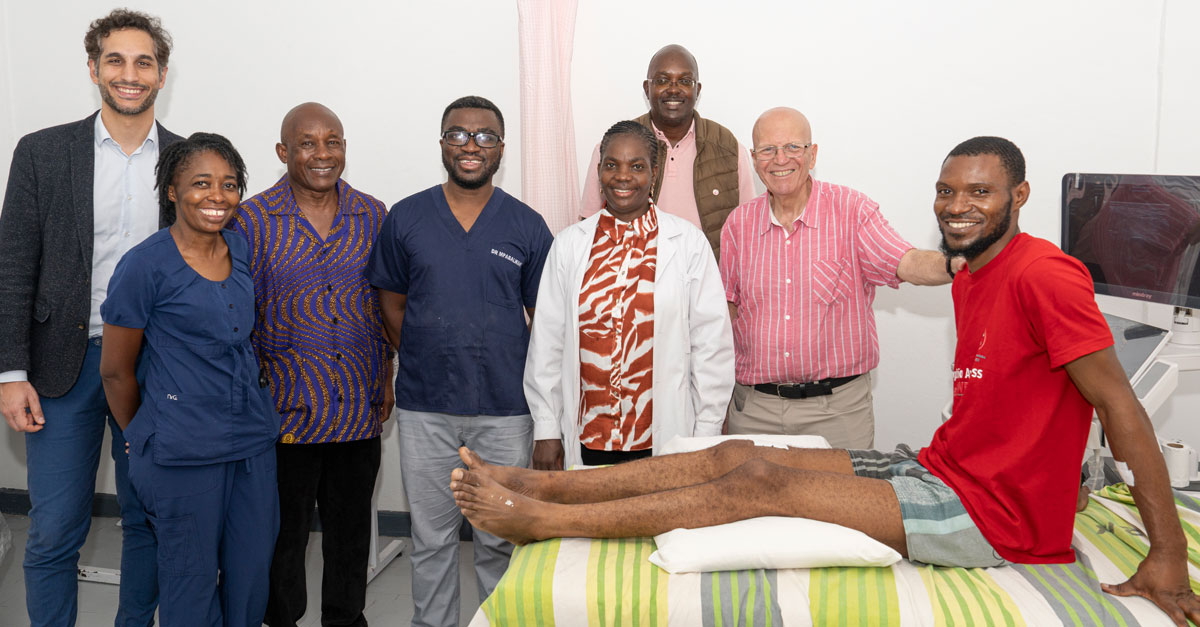Mutimba Bernard Mpabalwani, MD, Trauma Surgeon, University Teaching Hospital, Lusaka, was trained in Kenya in 2024 through a workshop focused on ultrasound-guided joint injections using the Joint Tissue Activity and Damage Exam (JADE) protocol. Using the knowledge he gained there, he is now part of a new ultrasound/synovectomy program in Zambia. “We were then taught by the [WFH Humanitarian Aid Program] team and another orthopedic surgeons and physiotherapists, who showed us how to do the point of care ultrasound, including the injection of both steroids and liquid rifampicin,” Mpabalwani explained. He described how people with hemophilia who underwent the procedure had pain and loss of function in one or more joints, and how the procedure transformed their quality of life by eliminating pain and giving them back their mobility.
With this new technique that has come in, our patients will be able to receive outpatient treatment without being hospitalized, and they can quickly go back to their families.
—Mutimba Bernard Mpabalwani, MD, Trauma Surgeon, University Teaching Hospital, Lusaka
The treatment involves ultrasound imaging, local anesthesia, and chemical injections—which are much less invasive than equivalent surgical procedures—to reduce inflammation and damage. “With this new technique that has come in, our patients will be able to receive outpatient treatment without being hospitalized, and they can quickly go back to their families,” Mpabalwani added.
Reflecting on the progress made, Assad Haffar, MD, WFH Medical & Humanitarian Aid Director, said: “The seed that we planted 15 years ago, it really gave a result of a huge tree now, that is getting bigger and bigger to reach every corner of Zambia… we witness now how it is giving the fruits that the Zambian hemophilia patients deserve at the end.”
The WFH Humanitarian Aid Program has donated over 16.3 million IUs of factor and over 188,000 mg of non-factor replacement therapy to Zambia since 2015. Nearly 2.5 million IUs of factor, and 22,000 mg of non-factor replacement therapy were donated last year alone. To find out more about the WFH Humanitarian Aid Program please click here.
About the WFH Humanitarian Aid Program
The WFH Humanitarian Aid Program improves the lack of access to care and treatment by providing much-needed support for people with inherited bleeding disorders in developing countries. By providing patients with a more predictable and sustainable flow of humanitarian aid donations, the WFH Humanitarian Aid Program makes it possible for patients to receive consistent and reliable access to treatment and care. None of this would be possible without the generous support of Sanofi and Sobi, our Founding Visionary Contributors; Bayer, CSL Behring and Roche, our Visionary Contributors; Grifols, our Leadership Contributor; and Takeda, our Contributor. To learn more about the WFH Humanitarian Aid Program, visit www.treatmentforall.org.













